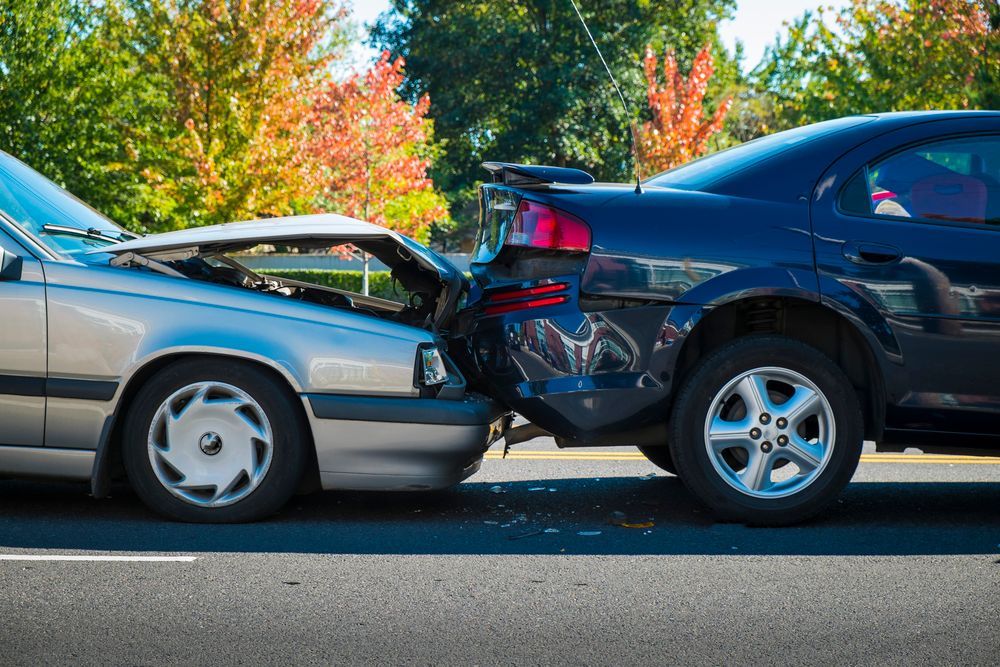Understanding Fault in Car Accidents: A Legal Roadmap

The aftermath of a car accident can often feel overwhelming and out of your control. Questions may start to pile up once the adrenaline recedes. Who's at fault? What are the legal implications? How does fault determination affect my insurance and potential litigation outcomes?
Assigning fault in a car accident can be complex, as it involves not only the law but also the complicated task of untangling the events and behaviors that led to the collision. In this in-depth exploration, we'll map out the landscape of fault in car accidents, empowering you with legal knowledge to steer through the post-accident landscape.
Breaking Down Fault Determination
At its core, 'fault' in a car accident context refers to the legal liability of a driver for causing an accident due to their actions or inactions. Determining fault is crucial, as it can directly affect insurance claims and legal responsibilities. The at-fault party may be required to compensate the other party for damage, injuries, or any other loss.
It's important to understand that fault is not always cut and dry. Some accidents involve multiple responsible parties, and others can be influenced by external factors such as weather conditions, road quality, or the state of the vehicles involved. In such cases, states with comparative fault laws may assign a percentage of responsibility to each party, which will determine how damages are allocated.
State laws regarding fault are not uniform. Some adhere to 'no-fault' systems, where each driver's insurance pays for their medical bills and related expenses, regardless of fault. However, it's important to note that 'no-fault' does not mean 'no liability'—it simply means specific legal thresholds must be met before a driver can sue for additional damages.
Factors in Fault Determination
In a typical scenario, several factors contribute to determining fault. This assessment is usually conducted by insurance companies or law enforcement agencies and can be influenced by eyewitness accounts, physical evidence, and expert opinions. Here are some common considerations.
Traffic Laws and Violations
A primary source of fault is a driver's violation of traffic laws. Speeding, running red lights, failure to signal, and failure to yield are classic examples of how a driver could be at fault for a collision.
Right-of-Way Rules
A significant portion of accidents occur when drivers fail to yield the right of way, resulting in crashes at intersections, for instance. Determining who had the right of way can effectively assign fault.
Distracted or Impaired Driving
Modern hazards like texting and driving, as well as the more traditional driving under the influence, are significant contributors to accidents, particularly those resulting from negligence.
Witness Testimony
Eyewitness accounts provide valuable, albeit sometimes subjective, insight into how an accident occurred. Their testimony can bolster tangible evidence and provide a clearer picture for fault determination.
Expert Opinions on Accident Reconstruction
Accident reconstruction experts use scientific principles and analysis of the accident scene to uncover what likely happened. Their opinions can be instrumental in court if a case goes to trial.
Comparative and Contributory Fault
Understanding comparative and contributory fault is crucial if you're involved in an accident. In states that use comparative fault, which can be categorized as 'pure' or 'modified,' plaintiffs may be able to recover damages even if they're partially at fault; however, the amount they can recover is reduced by their percentage of fault. In states that use pure comparative fault, the plaintiff can recover damages regardless of their percentage of fault. In states that follow modified comparative fault laws, the plaintiff can recover damages only if their share of fault is under a specific threshold.
Conversely, there are a few jurisdictions that still use contributory negligence, which states that a plaintiff cannot recover damages if they're even slightly at fault for the accident. This is a more harsh standard and isn't widely used due to its strictness.
Impact of Fault on Insurance Claims and Lawsuits
How fault is assigned has significant implications for any car accident case. In terms of insurance, the at-fault driver's insurance company is typically responsible for covering the damages of the other driver, up to the policy limits. If disputes over liability arise and the insurance companies can't reach a settlement, the case may end up in court. If that is the case, it is still the plaintiff's burden to prove the defendant's liability.
Fault determination after a car accident requires a nuanced understanding of legal principles, insurance protocols, and the specific circumstances surrounding the crash. Given the variability in state laws and the intricacies involved in establishing liability, it's crucial to approach each case with thoroughness and precision. Whether you're dealing with insurance claims or potential litigation, or are simply seeking to understand your rights and responsibilities, having legal knowledge is key. In any car accident scenario, a legal professional can provide clarity, ensuring you're well-equipped to handle the challenges of fault determination and its implications for your case.
To learn more about fault determination after a car accident, contact our firm.


